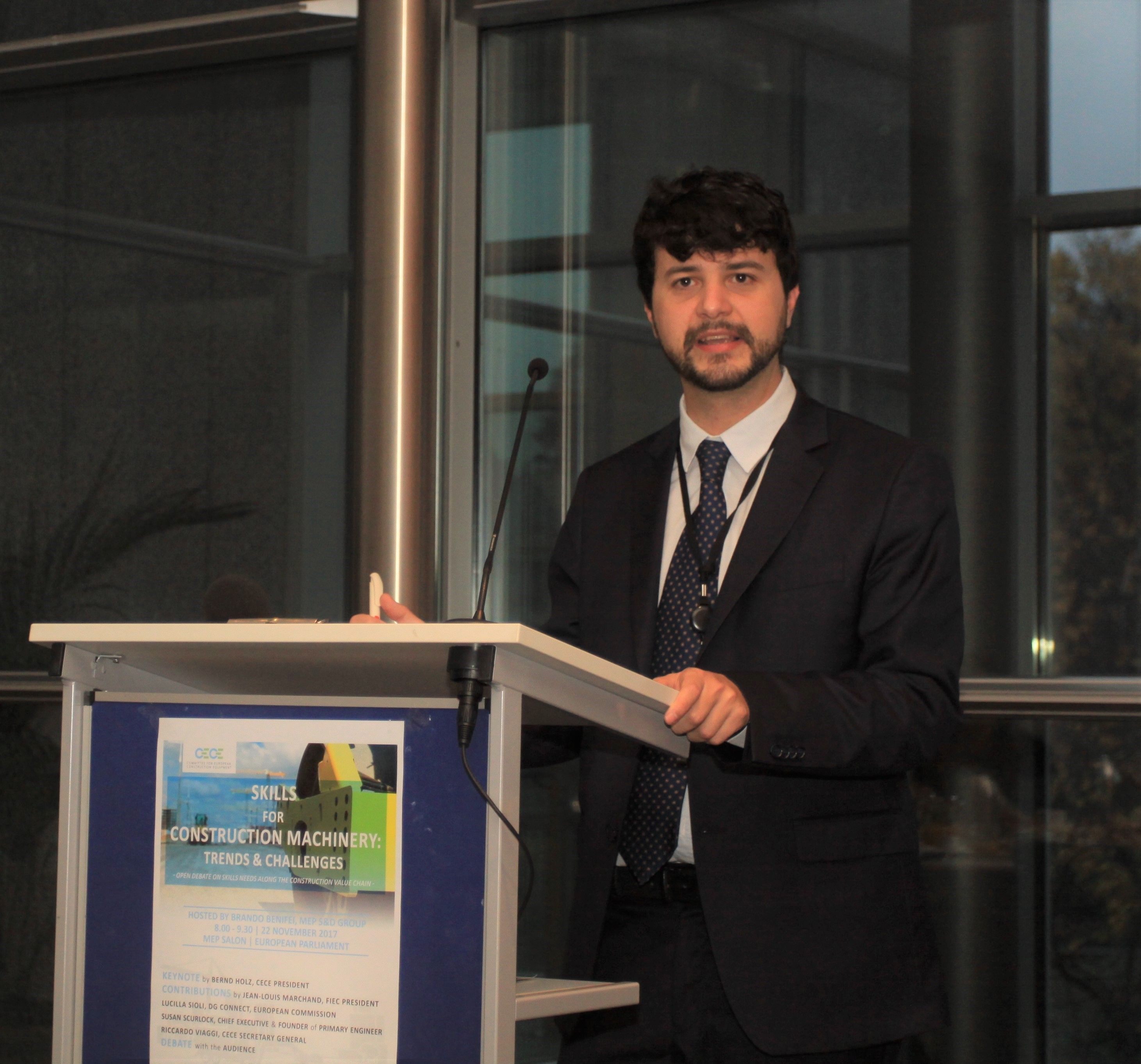
A
Demographic change, too few women on jobsites, lack of engineers, fierce competition, little interest in STEM disciplines, a bad image of the sector and growing demand for digital skills were among the subjects covered during the event held on Wednesday 22 November.
“CECE is determined to address the skills gap by providing a comprehensive review of the situation and developing solutions together with its partners”, said Riccardo Viaggi, Secretary General of CECE, adding: “It requires a strategic and collective approach from key stakeholders in and around the construction and equipment industries.” Thus, CECE (Committee for European Construction Equipment) invited representatives from across the value chain to join the event, hosted by MEP Brando Benifei, Member of the European Parliament’s Employment Committee.
Discussions centred around training and upskilling for the manufacturing and construction sector. Various skills initiatives like the British “Primary Engineer” which is mainly focusing on training primary school teachers or the German “Think BIG!” project was presented. EU Commission representative Lucilla Sioli stressed that the skills gap was a severe problem throughout the EU and that it is essential to raise more awareness in the member states. According to Sioli, one out of three citizens in Europe does not have any digital skills. She introduced the Commission’s new digital opportunity scheme, a pilot project that supports students to work in technical departments or on jobsites.
When it comes to capturing the historic transformation process the sector is facing on its way into the digital age, the skills gap is widely recognised as a significant inhibitor to the sector’s growth. Rapid technological, societal and economic changes affect the nature of job tasks in the sector, therefore the skills are needed. In the coming years skills of people operating and maintaining construction machines will significantly follow tasks in shifting not only to smart machine handling but to even more complex jobs, like managing central processes on construction sites. Future jobs will therefore require new and more advanced skills in engineering and ICT, as well as understanding and handling of specific software and basic understanding of new technological advancements such as automated construction machines. This demands stronger efforts of all businesses along the value chain and policy makers especially in terms of raising awareness of the problems, training, and providing the right skillsets. But demands for changing skillsets is only one side of the coin. Throughout Europe there are also many challenges in terms of attracting and recruiting young and sufficient workers with the right skillset.
“The effort that goes into the competition for newcomers in the sector is immense, especially among the technical disciplines”, said CECE president Bernd Holz. “We all must invest a great deal to inspire young people to find the sector attractive.”
Participants of the debate agreed that exchanging ideas, sharing experiences and even structuring isolated actions would be vital to be successful in mastering the skills challenge. As Jean-Louis Marchand, president of FIEC, the Construction Contractors Associationm said “we have to take the lead together”.









